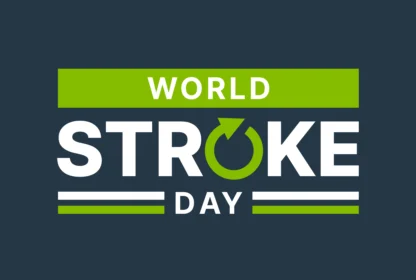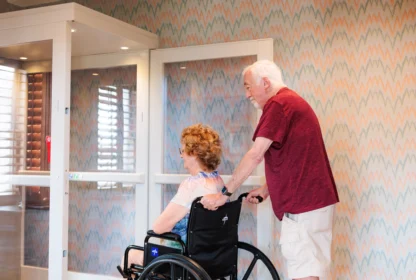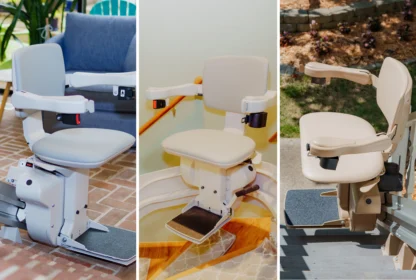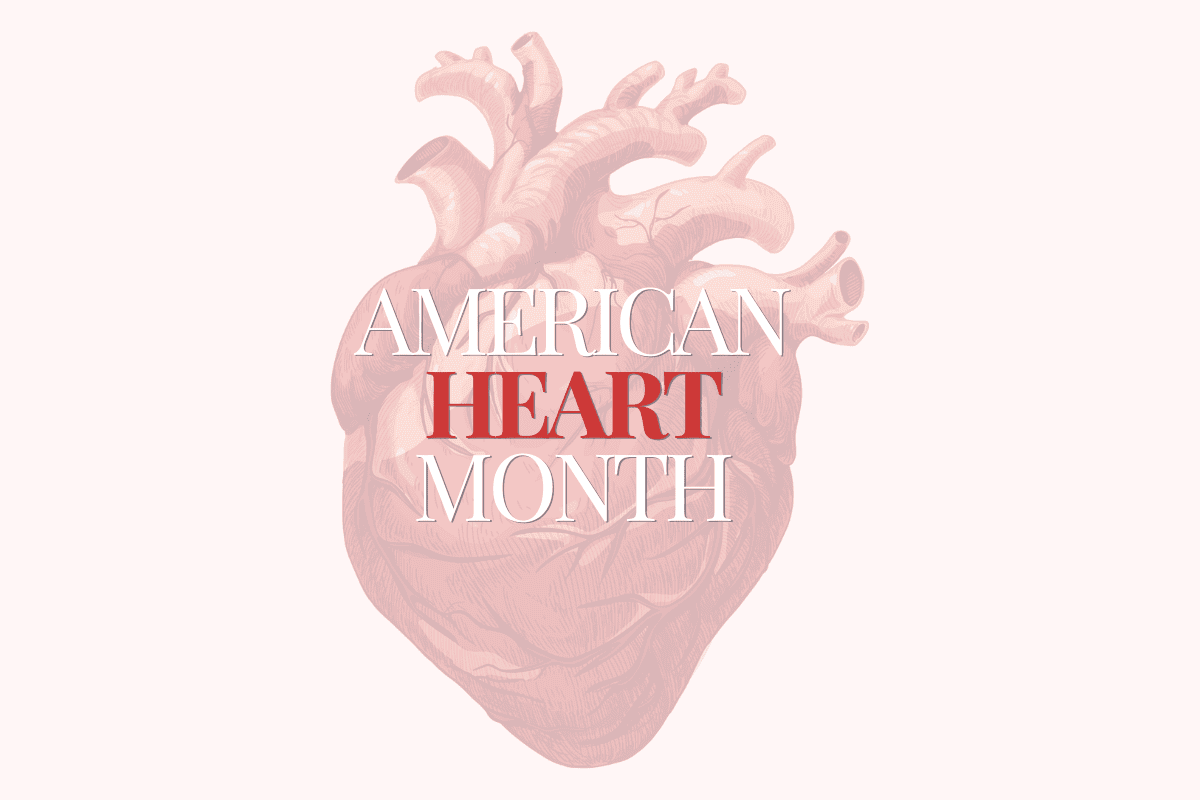
According to the American Heart Association, despite being the leading cause of death in the United States, around half the population is unaware of just how serious heart disease can be. American Heart Month is designed to combat this, raising awareness about heart health and supporting those who are dealing with heart disease.
At 101 Mobility, we strive to help those dealing with heart disease during American Heart Month—and year-round. Those who have faced heart issues often require accessibility solutions and home updates to stay mobile and safe. We’re proud to be able to provide mobility aids for heart patients and offer ongoing support, lending a helping hand during recovery. Learn more about supporting heart disease survivors, hear how 101 Mobility is working to make a difference, and get tips on navigating the road to recovery.
Common Challenges Heart Disease Survivors Face at Home
In order to better take care of yourself or work on supporting heart disease survivors in your life, you’ll likely want to know more about common challenges faced during recovery. The term “heart disease” encompasses a wide variety of cardiovascular conditions, from blood vessel disease and rhythm disorders to heart failure and congenital heart disease. These conditions bring with them a range of challenges, with their difficulty varying based on the unique factors of each disease. However, heart disease survivors often deal with the following:
- Struggles With Mobility: Due to a decrease in functional abilities, those suffering from heart conditions may face issues moving around their homes—especially when it comes to navigating stairs. Survivors may struggle with completing basic daily tasks and deal with balance or coordination issues, leading to increased fall risk as well. Aging in place after heart surgery can be especially challenging.
- Difficulties With Cognitive Ability: Often, issues with concentration, decision-making, memory, and regular thought processing can occur during recovery. Survivors may also find themselves losing focus when completing tasks.
- Fatigue and Limited Endurance: Survivors of heart disease may struggle to stand for long periods of time or walk for long distances, especially after surgery. They may experience weakness and exhaustion, often even when doing simple tasks, adding difficulty to the recovery period. Post-surgery mobility products may be able to help.
- Mental Health Issues: As a part of American Heart Month, it is important to remember that mental and emotional healing may also factor into the recovery process, as anxiety and depression are shown to affect more than 30-40% of those in the process of heart disease recovery. This can stem from dealing with traumatic experiences, adjusting to new ways of life, and worrying about the future. Don’t forget to check in on your loved ones frequently and thoughtfully, supporting heart disease survivors however you can.
While heart disease challenges can be scary and frustrating, there are many things you can do to help a loved one or yourself stay on track. Addressing these challenges is essential for safe and effective recovery, along with determining what accessible home solutions for heart patients may be needed. Remember to go easy on yourself or the heart disease survivor in your life. Offering support can often mean the world.
How 101 Mobility Solutions Support Heart Disease Survivor Recovery and Independence
We believe everyone deserves to feel comfortable and safe in their home. That’s why we’re dedicated to supporting heart disease survivors through our hiqh-quality, lifechanging products. When it comes to recovery, improving accessibility can make all the difference. Home safety for heart patients is especially important. Explore our mobility aids for heart patients, post-surgery mobility products, and home modifications designed to improve quality of life for heart disease survivors and others struggling with their mobility. See what you can do during American Heart Month—and beyond.
- Stairlifts and Home Elevators: If you’re recovering from heart disease, limited mobility may make it difficult to navigate your stairs. Both elevators and stairlifts can be helpful options to explore and choosing the right one for you depends on your unique situation. If you’re able to transfer to a chair, a stairlift may be ideal. However, if you’re a wheelchair user, an elevator may be more useful to you. Learn how to compare your options.
- Grab Bars: With limited mobility often comes balance issues, which can lead to increased fall risk—and increased risk of injury. Grab bars can be added around the home wherever you need them most and they can help stabilize you if you need extra support. They are especially useful when it comes to bathroom safety.
- Wheelchair Ramps: Ramps can help you access the entrance of your home and other areas with an incline if you use a wheelchair. They can also make it much easier to get around without the worry of a struggle.
- Lift Chairs: Designed to make sitting and standing easier, these chairs can assist when moving from a seated to standing position and feature mechanical tilting and lifting options. Choose the option that’s most comfortable for you and that fits best within your home’s decor.
Offering accessible home solutions for heart patients is a priority for us. Explore our other mobility aids for heart patients and accessible home modifications to see which one may be right for you. Remember, it’s all about your comfort and safety.
Partnering with 101 Mobility During Recovery
If you need extra help during heart disease recovery, are aging in place after heart surgery, or are supporting health disease survivors yourself, you can count on us to provide a helping hand. During a free in-home consultation, we’ll take a look at your home and suggest the tools and mobility products that may be right for you. We’re also here for you with expert installation when it comes to getting stairlifts, ramps, and other mobility aids for heart patients set up in your home. Even long after installation, we’ll be there to lend an ear, answering your questions and offering ongoing support and maintenance for all your mobility needs. Reach out to us today to get started. We’re here for you—no matter what you’re going through.
If you’re looking for additional ways to support a loved one during American Heart Month, read our blog on making your home accessible to visitors or explore our tips on making a caregiver checklist. Plus, see what we’re doing to make a difference every day and learn more about how we can help.
Healthy Living Tips for Heart Disease Survivors
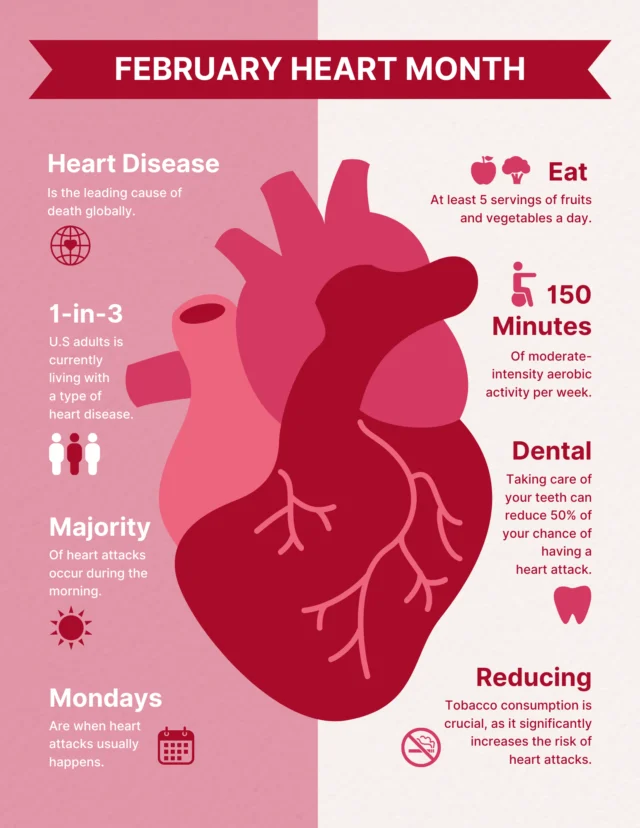
When recovering from or dealing with heart disease, the most important thing to do is keep moving forward. There are a variety of activities you can do and lifestyle tips you can follow to help encourage recovery, keeping your body and mind active in the process. Learn how to get started and experience healthy living support post-heart surgery.
- Stay Active Safely: Explore light physical, heart-healthy activities to help you ease into moving again. Don’t push yourself too hard, but try to get active whenever you can. Work on following a healthy diet, removing alcohol or smoking whenever possible. And remember to take it one day at a time.
- Create an Accessible Environment: Modifying your home to make it more accessible for your needs can greatly improve your quality of life—and give you peace of mind. Consider exploring a few mobility aids for heart patients to find what works best for you and your situation. We’re ready with accessible home solutions for heart patients and post-surgery mobility products.
- Lean on Support Networks: Don’t be afraid to ask for help. Lean on your caregivers, healthcare providers, family, and friends. You may even consider joining a support group or a cardiac rehabilitation program. We’re also here for you. Contact us anytime to chat about your mobility needs. You don’t have to do it all alone. Take time this American Heart Month to take care of yourself and support heart disease survivors.
Moving Forward, Together
At 101 Mobility, we’re dedicated to protecting our customers and communities. That’s why American Heart Month is such an important time for us. We’re working to spread awareness, supporting heart disease survivors and helping them get the mobility solutions and tools they need to get on the road to recovery. Staying informed and creating a safer home environment can help you or a loved one immensely when it comes to recovering from heart disease. Wear your heart disease ribbon with pride or in solidarity this month—and beyond.
Ready for some help? Reach out today for a consultation, explore our mobility aids for heart patients, or check out our blog for other helpful resources on mobility, aging in place, and more. We’re in this together.
